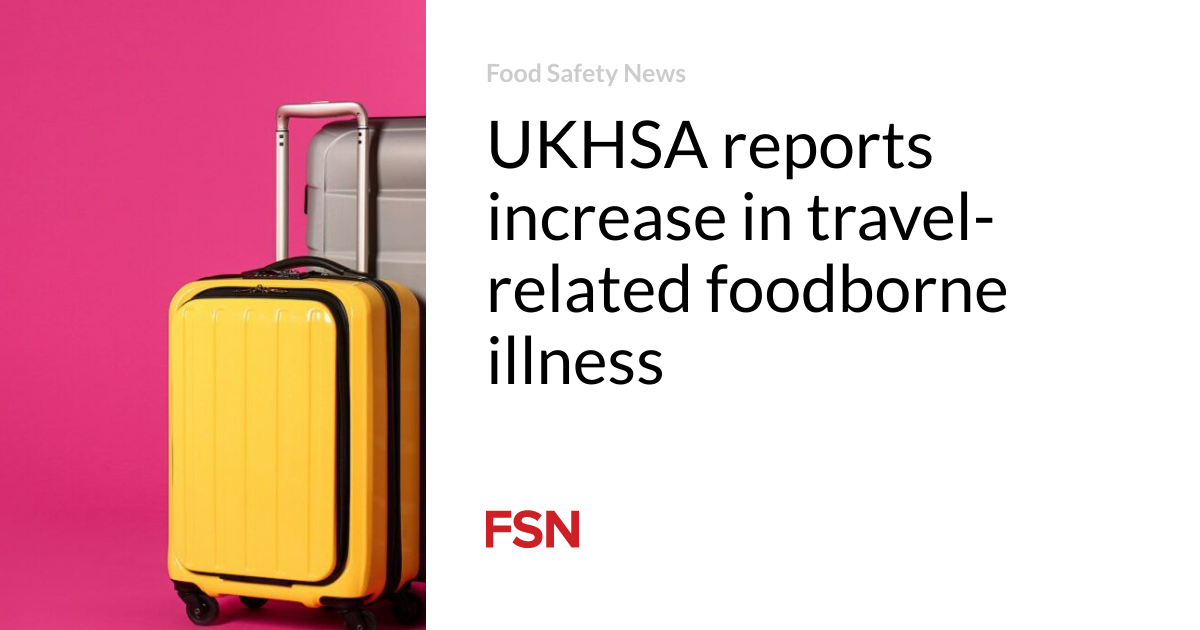
UKHSA reports increase in travel-related foodborne illness
How did your country report this? Share your view in the comments.
Diverging Reports Breakdown
UKHSA reports increase in travel-related foodborne illness
Gastrointestinal infections accounted for 65 percent of travel-associated infections in 2024 in England. The most reports are from children and young adults, with the highest rates in 2024 from those living in London. Turkey was the top reported country of travel with 417 cases, Spain was second with 268 followed by India with 202. Egypt, Greece, and Cape Verde also made the Top 10. The UKHSA said the figures were not adjusted for the number of people going to these countries, so they do not reflect the risk associated with a particular destination. People with symptoms should avoid going into school or work until they have been symptom-free for 48 hours.
The UK Health Security Agency (UKHSA) said such illnesses are most frequently reported in summer following international travel. Gastrointestinal infections accounted for 65 percent of travel-associated infections in 2024 in England.
Gastrointestinal infections include Campylobacter, E. coli, Shigella, Salmonella, cryptosporidium, and other illnesses without a lab confirmed diagnosis.
Rise in infections
Over the period studied, travel-associated infections in England increased by 64 percent from 2022 to 2,703 in 2024. These figures were likely impacted by Coronavirus pandemic travel restrictions.
Hepatitis A travel-associated cases are often recorded in summer months following travel abroad. The most reports are from children and young adults, with the highest rates in 2024 from those living in London.
Enteric fever reports peak in spring and autumn – infections are mainly in young adults who have been to India, Pakistan, or Bangladesh. Enteric fever covers Salmonella typhi and paratyphi.
The highest reported burden of gastrointestinal infections in 2024 was seen in the North East, West Midlands, and East Midlands.
In England, travel-associated gastrointestinal infections peaked in September during 2022 and 2023, with a slightly later peak in September and October in 2024.
The age group with the largest number of infections was those up to 10 years old. Infections were also high in people aged 21 to 30.
–>
Infections by country of travel
With 417 cases, Turkey was the top reported country of travel. Spain was second with 268 followed by India with 202. Egypt, Greece, and Cape Verde also made the Top 10.
The UKHSA said the figures were not adjusted for the number of people going to these countries, so they do not reflect the risk associated with a particular destination.
Suggested prevention measures to tackle foodborne infections during travel include washing hands regularly with soap and hot water after visiting the toilet, and before preparing or eating food. In countries with poor sanitation, it is not advisable to drink tap water or use it to clean teeth, unless it has been treated. Ice in drinks should be avoided.
Avoid foods such as salads, fresh or cooked food that has been left uncovered in warm environments or exposed to flies, unpasteurized dairy products like milk, cheese, ice cream and yogurt, and raw or undercooked meat, fish or shellfish, including oysters.
If affected by gastrointestinal infection symptoms post travel, rest and drink plenty of bottled fluids supplemented with rehydration salts if possible. Seek medical attention if symptoms are severe or don’t improve within three days. People with symptoms should avoid going into school or work until they have been symptom-free for 48 hours.
(To sign up for a free subscription to Food Safety News, click here.)
Source: https://www.foodsafetynews.com/2025/07/ukhsa-reports-increase-in-travel-related-foodborne-illness/
